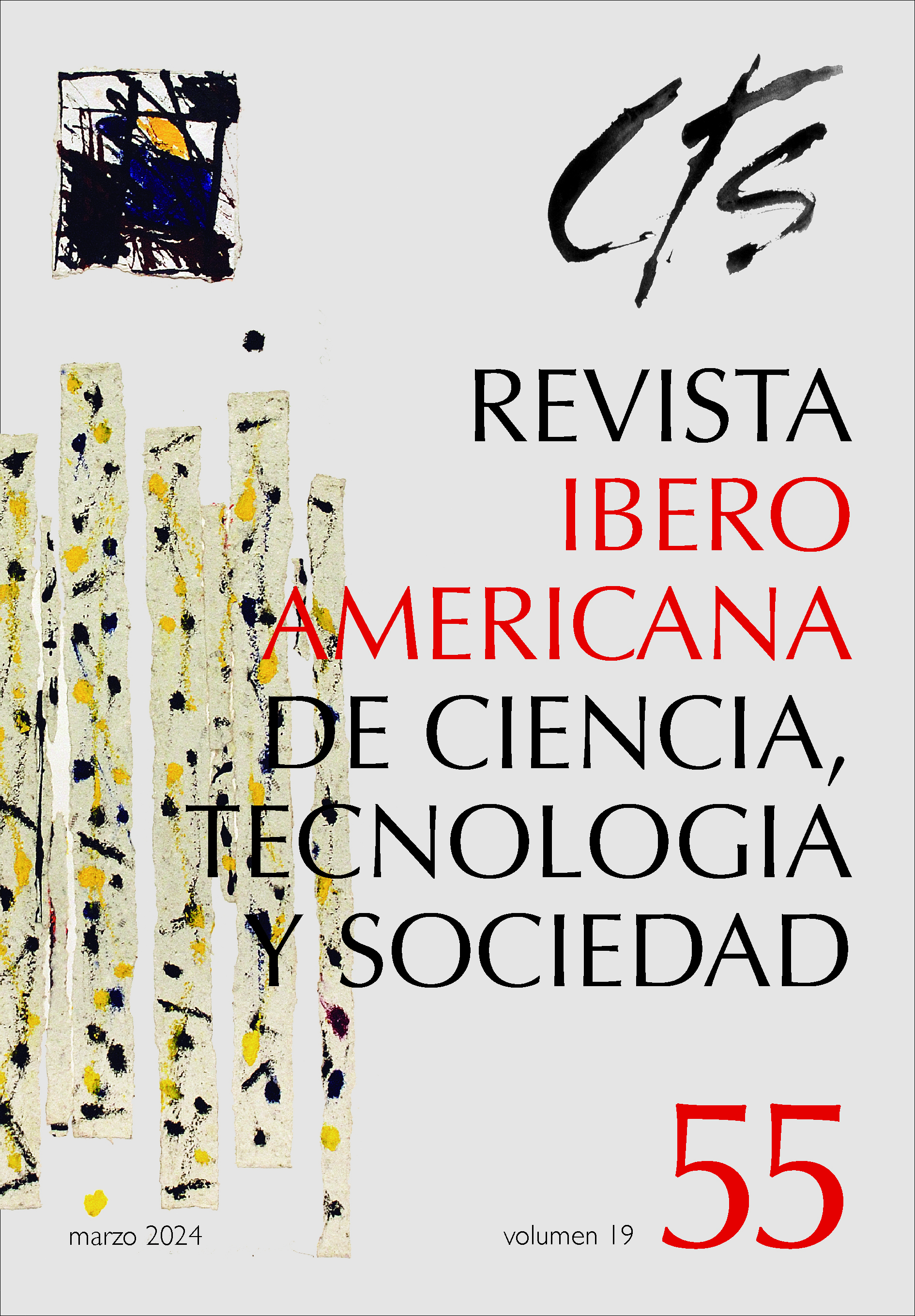Political Epistemology
Science with the People
DOI:
https://doi.org/10.52712/issn.1850-0013-454Keywords:
uncertainty, quality, complexity, ambiguity, postnormalAbstract
Postnormal science (PNS) emerged about 40 years ago, contrasting with the scientific activity described by Thomas Kuhn as "normal". PNS proposes the democratic extension of the right to knowledge that enhances the quality of techno-scientific evidence in decision-making processes for political action. PNS, as a science of responsible anticipation, recognizes as equal the knowledge created historically and culturally outside the scientific field. Four characteristics define PNS: the facts are uncertain; there is a plurality of values, usually in conflict; the stakes are potentially very high; and the decisions are urgent. Interest in PNS has intensified in recent years in the face of the issues posed by the challenges of climate change, biodiversity, sustainability, and the COVID-19 pandemic, which illustrate the policy and practical issues of social concern.
Downloads
References
Atlan, H. (2015). Tout, non, peut-être. Éducation et vérité. Média Diffusion.
Carson, R. (1962). Silent Spring. Boston: Houghton Mifflin Company.
De Marchi, B. & Funtowicz, S. (1994). General Guidelines for Content of Information to the Public. Directive 82/501/EEC. Annex VII. Report EUR 15946. Luxemburgo: Office for Official Publications of the European Communities. Recuperado de: https://circabc.europa.eu/sd/a/d9789f81-f7fa-4797-8145-7ac2b080870c/Infoen2.doc.
De Solla Price, D. (1963) Little Science, Big Science. Nueva York: Columbia University Press.
Funtowicz, S. & Hidalgo, C (2008). Ciencia y política con la gente en tiempos de incertidumbre, conflicto de intereses e indeterminación. En J. López Cerezo & F. Gómez González (Eds), Apropiación social de la ciencia. Madrid: Biblioteca Nueva.
Funtowicz, S. & Hidalgo, C (2021). Pandemia posnormal: las múltiples voces del conocimiento. Papeles de relaciones ecosociales y cambio global, (154), 127-140.
Funtowicz, S. & Ravetz, J. (1990). Uncertainty and quality in science for policy. Dordrecht: Kluwer Academic Publishers.
Funtowicz, S. & Ravetz, J. (1993). Science for the post-normal age. Futures, 31(7), 735-755. Recuperado de: https://commonplace.knowledgefutures.org/pub/6qqfgms5/release/1.
Funtowicz, S. & Ravetz, J. (1994). Emergent complex systems. Futures, 26(6), 568-582.
Funtowicz, S. & Ravetz, J. (2020). La ciencia posnormal. Ciencia con la gente. Barcelona: Icaria.
Hidalgo, C. (2016). Interdisciplinarity and Knowledge Networking: Co-Production Of Climate Authoritative Knowledge In Southern South America. Issues in Interdisciplinary Studies, (34), 183-199.
Kuhn, T. (1962). The Structure of Scientific Revolutions. Chicago: The University of Chicago Press.
Rayner, S. & Sarewitz, D (2021). Policy making in the post-truth world. On the limits of science and the rise of Inappropriate Expertise. Breakthrough Journal, (13), 15-43.
Rosen, R. (1977). Complexity as a System Property. International Journal of General Systems, 3(4), 227-232. DOI: https://doi.org/10.1080/03081077708934768.
Taddei, R. & Hidalgo, C. (2016). Antropología Posnormal. Cuadernos de Antropología Social, (42), 21-32.
Thompson, M. & Warburton, M. (1985). Decision Making Under Contradictory Certainties: how to save the Himalayas when you can’t find what's wrong with them. J. Applied Systems Analysis, 12.
Unión Europea (2001). Comunicación de la Comisión. La gobernanza europea - Un Libro Blanco, 25 de julio. Recuperado de: https://eur-lex.europa.eu/ES/legal-content/summary/white-paper-on-governance.html.
Weinberg, A (1972). Science and tran-science. Minerva, 10, 209-222.
Downloads
Published
How to Cite
Issue
Section
License
Copyright (c) 2024 CC Attribution 4.0

This work is licensed under a Creative Commons Attribution 4.0 International License.
All CTS's issues and academic articles are under a CC-BY license.
Since 2007, CTS has provided open and free access to all its contents, including the complete archive of its quarterly edition and the different products presented in its electronic platform. This decision is based on the belief that offering free access to published materials helps to build a greater and better exchange of knowledge.
In turn, for the quarterly edition, CTS allows institutional and thematic repositories, as well as personal web pages, to self-archive articles in their post-print or editorial version, immediately after the publication of the final version of each issue and under the condition that a link to the original source will be incorporated into the self-archive.











